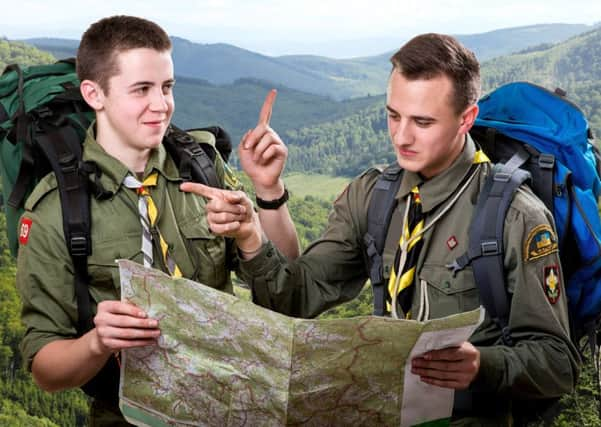Kate Docherty: Inclusion is key to Scouting's system


It was an enormous privilege to join Scouts at Edinburgh Pride. What struck me throughout was the surprise amongst some attendees that Scouts were there. On more than one occasion someone told me that they were delighted Scouts Scotland was represented.
The most heartening conversations were with those who had been involved as children themselves and wanted to re-engage with Scouting as adult volunteers. They may not have felt that Scouting was inclusive when they were children, but were delighted to be made to feel welcome again.
Advertisement
Hide AdAdvertisement
Hide AdInclusion is a key part of our programme. We’re well known for the exciting and adventurous activities that we offer, but we also know that our members learn as much from each other through their shared experiences in Scouting.
Inclusion covers many different areas, and our work is supported by a team of advisers who help us make Scouting as open as possible. These advisers cover LGBTI, gender, disability and additional needs, ethnic and faith communities, and areas of multiple deprivation. We’re also working with communities where Scouting has historically been under-represented to bring new provision to those areas.
Our primary role is to teach young people, and we take the importance of educating young people about inclusion incredibly seriously. My own son’s Cub group will be spending the next couple of weeks working towards their Disability Awareness badge, making them aware of how other people see the world. We give our leaders resources to help them facilitate what can be difficult conversations with young people on these and other issues.
Inclusion is also about giving the same experience to all young people. Our National Activity Centre at Lochgoilhead allows all young people to experience the same fun, exciting programme of activities, regardless of any additional support needs they have.
The understanding we give young people of these issues has tangible benefits for their communities. One of our groups from Glenrothes worked with Leonard Cheshire to assess and review how accessible the Loch Leven nature reserve was for those with disabilities.
Scouting is over a century old, and our aims then are exactly the same as they are now – to bring people from different backgrounds together. Our mission has therefore never been more relevant – today we’re one of Scotland’s largest youth charities, and we have a positive impact that benefits young people, volunteers and communities.
There are no barriers to becoming a Scout. I’m incredibly proud that we’re an inclusive, values-based movement and membership is open to everyone who shares those values. And we believe everyone, no matter what background they come from, should be able to experience Scouting.
Kate Docherty is chief executive, Scouts Scotland, www.scouts.scot